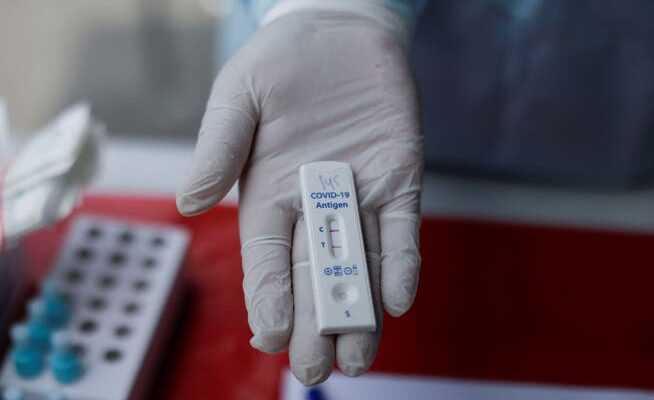In view of the increasing number of cases and the milder omicron variant, abolishing the quarantine is more than worth considering.
Anyone who tests positive must isolate themselves, that is undisputed. But the situation is different for people who have been in contact with infected people.
Those who are sick should isolate themselves. This is probably the oldest rule of all for fighting infection. That’s what it says already in the Old Testamentthat someone who is “unclean”, i.e. contagious, should “dwell alone” for at least seven days. Those who then still show symptoms should be locked up by the priests for another seven days.
In principle, the pandemic rules of the Federal Office of Public Health and the cantons say nothing more than the Book of Leviticus: Anyone who has symptoms should isolate themselves. Anyone who has had close contact with a sick person should be in quarantine.
The quarantine lasted ten days until the end of the year, when it was reduced to the biblical period of seven days. Since Wednesday, five days have been used for isolation and quarantine.
First ten, then seven, then five: Anyone who thinks this reduction through to the end will soon ask themselves whether the officially ordered quarantine is still necessary. There is no question that the sick should isolate themselves. But those who only had contact with the sick?
Such a lifting of the quarantine for contact persons is not a radical demand from opponents of the measure: In a consultation that the Federal Council sent to the cantons this week, this is a possible option.
The epidemiologist Marcel Salathé had previously suggested in the “Sonntags-Zeitung” that the quarantine be canceled entirely and that more testing be done. Another Federal Council proposal is that there should only be self-quarantine and self-isolation and no longer officially ordered ones.
Less comprehensive instructions from above, but more personal responsibility: In view of the vaccination rate and the apparently milder omicron variant, this is the right approach.
Society has learned to deal with Corona. Also those
who do not get vaccinated relate to a not small
Partly responsible, get tested and observe the hygiene measures.
In addition, the quarantine no longer applies with a biblical absoluteness. Only close contacts, namely in your own household, are sent to quarantine at all. Anyone who has just been vaccinated or has recovered is not affected in this case either.
In the canton of Zurich, you are exempt from quarantine for four months after a vaccination or illness, in other cantons even longer. There hasn’t been an entry quarantine for a long time.
There are also exceptions for companies. You can of your own accord exempt employees from quarantine for professional activities and for the commute to work, provided that the company carries out repetitive testing. This even works without permission from the authorities.
Finally, the question arises as to what purpose quarantine is supposed to serve when around 40,000 people are tested positive per day in the canton of Zurich alone – this is a number, which one Director of Health Natalie Rickli expects at the end of January.
If, as a rough assumption, two more people are sent into quarantine for each infected person, then after just four days almost half a million Zurich residents will be banished to their own homes – this would be every third person in the canton.
Every third doctor would be absent, every third teacher, every third saleswoman, every third baker. Neither hospitals nor schools nor bakeries can function if a third of the workforce is absent. The economic consequences would be serious.
The quota may be exaggerated, but even if only every fifth person were absent, it would be critical. Seen in this way, a – cautious – further reduction in the quarantine period is a realistic way to avert even greater damage to society and the economy.
